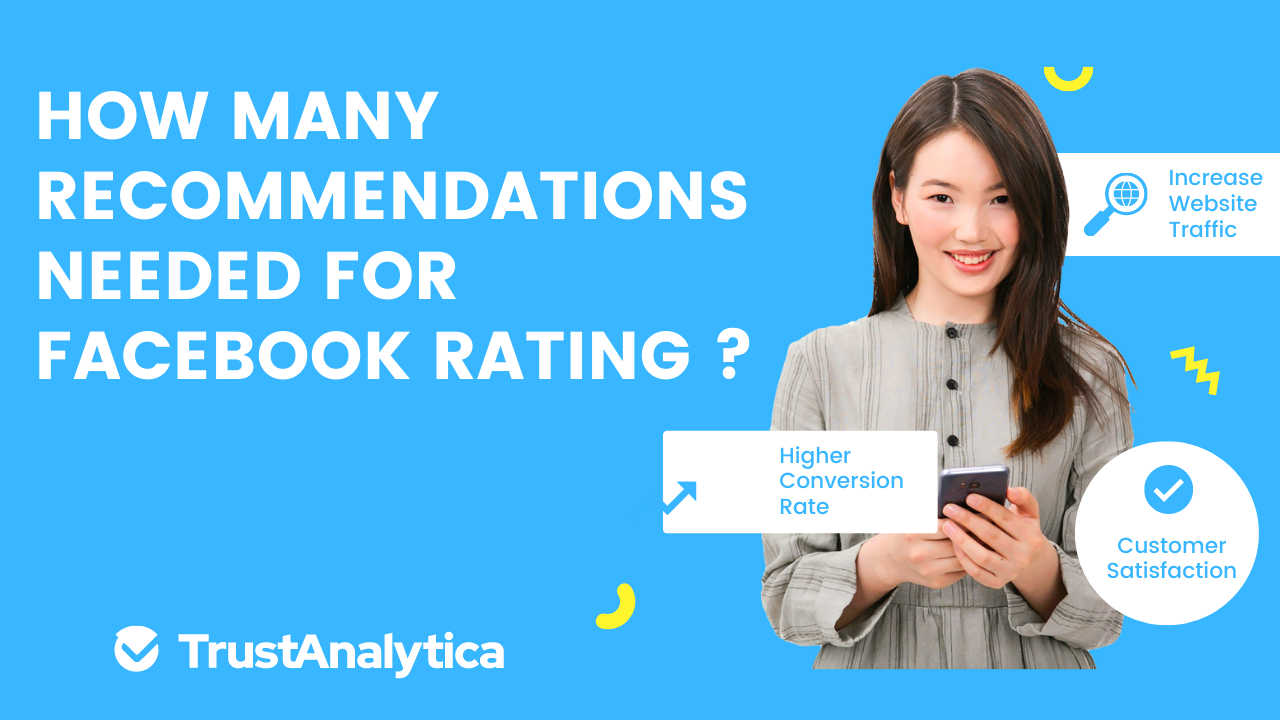Post Updated: 11th November, 2023 Facebook is one of the most influential social media platforms in the world. With its extensive reach and scope, not to mention expansive engagement, 2.936 billion active users as of April 2022, it is only natural for businesses to pursue Facebook for lead and demand generation. The company offers brands […]

Post Updated: 11th November, 2023
Facebook is one of the most influential social media platforms in the world. With its extensive reach and scope, not to mention expansive engagement, 2.936 billion active users as of April 2022, it is only natural for businesses to pursue Facebook for lead and demand generation.
The company offers brands to create “Business Pages” where they can connect with billions of users and cast a wide net for prospects. All of this may seem straightforward, but it is far from it.
Facebook experiments with different metrics to reward businesses with improved visibility and so on. The classic model was based on “star ratings” which is similar to other platforms.
Marketers can remain on top of developments like these by using streamlined online business reputation management software.
Facebook explained that the recommendations are much better than ratings as they help the company in a better way to “recommend” a business to other users. There is much contention regarding the reach and scope of this concept, yet it has been implemented by the social media giant.
The mechanism behind Facebook recommendations is as follows:
In contrast to this model, the five-star rating model was easier. Users can award stars to a business out of a maximum of 5 with no necessary description.
Also, Facebook has added some prompts and tags to make the “description process” easier, but it is still far from perfect because many tags are not relevant to industries.
According to this implementation, whenever a person tags a business through a post or a photo, Facebook will ask the user if he or she wants to recommend that business. The rationale behind this practice, as mentioned in the previous section, is to get people to recommend that business if they are satisfied with it.
The results of this “asking” for recommendations are yet to be seen, but there is a sentiment that people may not like it and feel like they are being coerced to do something.
In addition to this, Facebook lets the users determine the coverage and scope of their recommendations, i-e, if they want only their friends to see those recommendations, along with a plethora of other options. It is speculated that the business that is recommended can see that recommendation even if it was only shared by a friend.
For now, the “stars” are still there but their future is highly questionable. One reason behind this conjecture is their changed nature.
Instead of being simply a star-based rating, Facebook now shows that the rating is based on several positive recommendations.
Marketers are extremely divided on the utility of this recommendation system. For instance, Facebook only highlights the number of people who recommend that business but not how many users do not recommend that. In a community-based environment where the integrity of a business is heavily reliant on opinion, this is extremely underwhelming for both companies and users to showcase the true picture.
There is a hard and non-scientific way to gauge this, by scrolling through all the recommendations received by a business.
This raises many questions for marketers and other professionals who are responsible for brands’ online reputations. The most recurring one is this:
According to Facebook Help Center, ratings depend on multiple factors, including but not limited to reviews and recommendations shared by users on Facebook. It also states that only those businesses that “allow” Recommendations will have ratings to show. Pages with not “enough” recommendations will not have a rating at all!
In addition to this, the company iterates that recommendations shared publicly will affect the rating count and those only shared with friends bear no value.
Again, this is a tricky situation for professionals who want to market a business or small businesses that opt for this platform for demand generation.
Even though Facebook claims that the ratings for a business page are based on the opinion of “n” users, there are grave disparities between the two metrics. In many cases, marketers have found that a business was rated on the opinion of more users but was recommended by not even fifty percent of them. In other instances, Facebook’s algorithm does not recognize the recommendations at all.
With the proliferation of fake comments and reviews across the internet, Facebook is not impervious to that. Sooner or later, a business page will receive reviews that are blatantly inappropriate or completely fake.
Facebook has prescribed account users to report these activities. In the latest stance, the company is prioritizing authenticity above all else.
Although there is a lack of transparent and streamlined mechanisms to deal with fake reviews, we can hope that that will not be the case soon.
By now, it is maybe premature to see what fruits will this policy bring for business pages and end-users. There is a lot of uncertainty regarding the influence and value of ratings, recommendations, and what will be their relationship to determining the value of a business on the platform.
Also, the new implementation is completely “irrelevant” for businesses related to certain industries, in terms of recommendation prompts and tags. Since the project is still in its infancy, we can expect drastic changes in the coming days.

